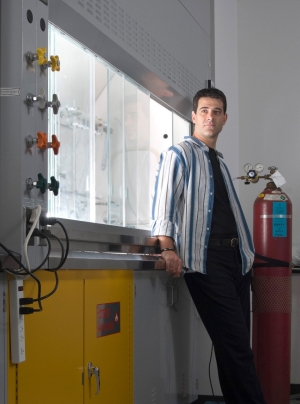Jan 18 2013
The federal government’s Canada Foundation for Innovation (CFI) is investing $8.7 million in two national research projects in which SFU is a major participant.
 Neil-Branda
Neil-Branda
The Prometheus Project, a new initiative to create a multi-institution B.C. research university hub for advanced materials science and engineering innovation and commercialization, will receive $7.7 million.
And the ATLAS Tier-1 Data Analysis Centre at TRIUMF, Canada’s national nuclear and particle physics laboratory in Vancouver, will receive $1 million to upgrade the centre, which processes data from the ATLAS experiment at the Large Hadron Collider (LHC) in Geneva, Switzerland.
The Prometheus Project will be led by SFU chemistry professor Neil Branda, a Canada Research Chair in materials science and co-founder of 4D LABS, SFU’s $40-million materials science research centre.
The project’s 10 principal researchers and 20 other scientists at SFU and other B.C. research universities aim to create new materials science and engineering technology innovations that trigger and support sustained economic growth by creating, transforming and obsolescing entire industries.
“Research and community engagement underlie the collaboration of the research-intensive universities in this project,” says Branda. “Our focus will be on integrating our research expertise to create operational devices and systems for uptake by industry partners.”
The ATLAS facility, led by SFU and TRIUMF physicist Mike Vetterli, is one of 10 Tier-1 centres in the Worldwide Large Hadron Collider Computing Grid (WLCG), which processes the roughly 15 million gigabytes of data produced annually by the collider.
The CFI-financed upgrade “will enable Canadian scientists to continue to play a leading role in ATLAS physics analysis projects such as the Higgs boson discovery,” last summer, says Vetterli.
“Much more work and data are required to learn more about the Higgs-like particle and show that it is indeed the missing link to our understanding of the fundamental structure of matter.”